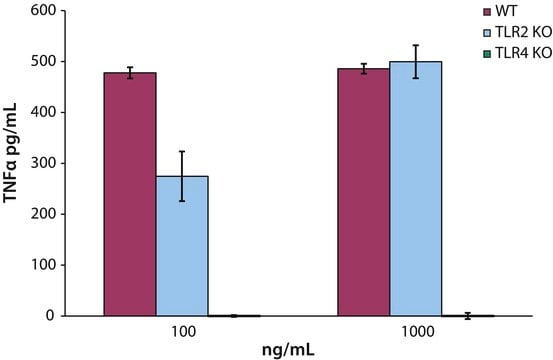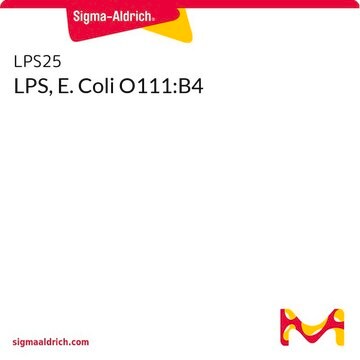L5399
Lipid A, diphosphoryl from Escherichia coli F583 (Rd mutant)
Synonym(s):
Diphosphoryl Lipid A from E.Coli.
About This Item
Recommended Products
biological source
Escherichia coli (F583 Rd mutant)
Quality Level
form
lyophilized powder
shipped in
ambient
storage temp.
2-8°C
SMILES string
CCCCCCCCCCCCCC(=O)OC(CCCCCCCCCCC)CC(=O)OC1C(NC(=O)CC(CCCCCCCCCCC)OC(=O)CCCCCCCCCCC)C(OCC2OC(OP(O)(O)=O)C(NC(=O)CC(O)CCCCCCCCCCC)C(OC(=O)CC(O)CCCCCCCCCCC)C2O)OC(CO)C1OP(O)(O)=O
InChI
1S/C94H178N2O25P2/c1-7-13-19-25-31-37-38-44-50-56-62-68-84(103)115-78(66-60-54-48-42-35-29-23-17-11-5)72-86(105)119-92-88(96-82(101)71-77(65-59-53-47-41-34-28-22-16-10-4)114-83(102)67-61-55-49-43-36-30-24-18-12-6)93(116-79(73-97)90(92)120-122(107,108)109)113-74-80-89(106)91(118-85(104)70-76(99)64-58-52-46-40-33-27-21-15-9-3)87(94(117-80)121-123(110,111)112)95-81(100)69-75(98)63-57-51-45-39-32-26-20-14-8-2/h75-80,87-94,97-99,106H,7-74H2,1-6H3,(H,95,100)(H,96,101)(H2,107,108,109)(H2,110,111,112)
InChI key
GZQKNULLWNGMCW-UHFFFAOYSA-N
General description
Application
- to study the effect of various lipid A molecules on lung pericyte proliferation in vitro
- to test on THP-1 and J774A.1 cells for neopterin and nitrite formation respectively
- as lipopolysaccharides (LPS) derivatives in binding experiments
- to stimulate the spleen cells and as a mitogen stimulation for toll like receptor 4 (TLR4)
Biochem/physiol Actions
Storage Class Code
11 - Combustible Solids
WGK
WGK 3
Flash Point(F)
Not applicable
Flash Point(C)
Not applicable
Personal Protective Equipment
Choose from one of the most recent versions:
Certificates of Analysis (COA)
Don't see the Right Version?
If you require a particular version, you can look up a specific certificate by the Lot or Batch number.
Already Own This Product?
Find documentation for the products that you have recently purchased in the Document Library.
Our team of scientists has experience in all areas of research including Life Science, Material Science, Chemical Synthesis, Chromatography, Analytical and many others.
Contact Technical Service



